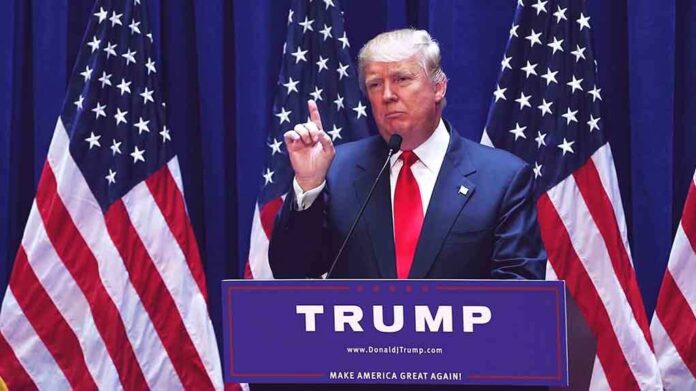
President Trump grants a full pardon to Florida diver Tanner Mansell, who was convicted for freeing 19 sharks and a giant grouper, restoring his rights and vindicating his passion for marine conservation.
Key Takeaways
- Tanner Mansell received a full presidential pardon from President Trump after being convicted for cutting a NOAA longline to free marine wildlife in 2020.
- The conviction had stripped Mansell of critical rights, including voting, firearm ownership, and international travel, severely limiting his conservation work.
- Mansell and his charter boat captain believed they were stopping an illegal fishing operation when they freed the sharks, immediately reporting their actions to authorities.
- The case gained national attention after a federal judge questioned the prosecution, and the Cato Institute published an article that eventually reached the White House.
- The presidential pardon has restored Mansell’s rights and ability to continue his marine conservation efforts without the burden of a felony record.
Trump’s Pardon Restores Freedom to Marine Conservationist
In a decisive move supporting conservation efforts, President Trump has granted a full presidential pardon to Tanner Mansell, a Florida-based shark diver who was convicted of cutting a National Oceanic and Atmospheric Administration (NOAA) longline to free 19 sharks and a giant grouper in 2020. The pardon came as a complete surprise to Mansell, who received the news while on a flight. The conviction had resulted in over $3,300 in restitution fees and, more critically, had stripped him of fundamental rights including voting, owning firearms, and traveling internationally—restrictions that severely hampered his marine conservation work.
The incident occurred in August 2020 when Mansell and his charter boat captain, John Moore Jr., encountered what they believed was an illegal fishing operation off the Florida coast. Acting on what they considered an ethical imperative to protect marine life, they cut the line and freed the entrapped animals. Demonstrating their belief in the righteousness of their actions, they immediately reported what they had done to wildlife officials, expecting commendation rather than prosecution. Instead, they found themselves charged with theft in a maritime zone and subsequently convicted in 2022.
A Case of Conservation Versus Regulation
What makes this case particularly compelling is the presence of a police chief and a SWAT officer on the boat when the incident occurred. These law enforcement professionals supported Mansell’s decision, believing they were witnessing and stopping an environmental crime in progress. Despite their backgrounds in law enforcement, the group found themselves on the wrong side of federal regulations designed to protect research operations. The conviction shocked Mansell, who maintained throughout that he was acting in the best interest of the marine animals and the environment.
“We were really surprised to get the pardon,” said Tanner Mansell, Florida diver and marine conservationist.
The judge who presided over the case recognized the unusual circumstances, issuing what Mansell’s attorney described as “probably the lowest sentence ever” for such an offense. This judicial restraint highlighted the questionable nature of the prosecution. Further validation came when a judge from the U.S. Court of Appeals publicly questioned whether the case should have proceeded at all, comments that helped draw public attention to Mansell’s plight and eventually caught the eye of the White House.
Presidential Intervention Provides Second Chance
The path to Mansell’s pardon illustrates how government overreach can be corrected through executive action. After the Cato Institute published an article detailing the case, the matter came to the attention of the Trump administration. On May 28, President Trump granted full presidential pardons to both Mansell and Moore, wiping their records clean and restoring their constitutional rights. The timing was perfect for Mansell, who received the call from his attorney while in mid-flight.
“I was getting a call from my lawyer, and I answered, and he said, ‘Well, I’ve got good news for you. You just got a full presidential pardon.’ I was speechless. I couldn’t even say thank you. I just soaked it in,” said Tanner Mansell, Florida diver.
This pardon represents more than just legal relief for Mansell; it’s a vindication of his dedication to marine conservation. His attorney, Ian Goldstein, emphasized this point, stating, “I can’t think of two individuals more deserving of a Presidential Pardon.” The case underscores the tension between conservation efforts and government research, and highlights how President Trump’s administration has recognized when regulatory enforcement has gone too far. For Mansell, the pardon means he can now resume his conservation work without the constraints of a felony conviction, continuing his mission to protect ocean life with his full rights restored.












